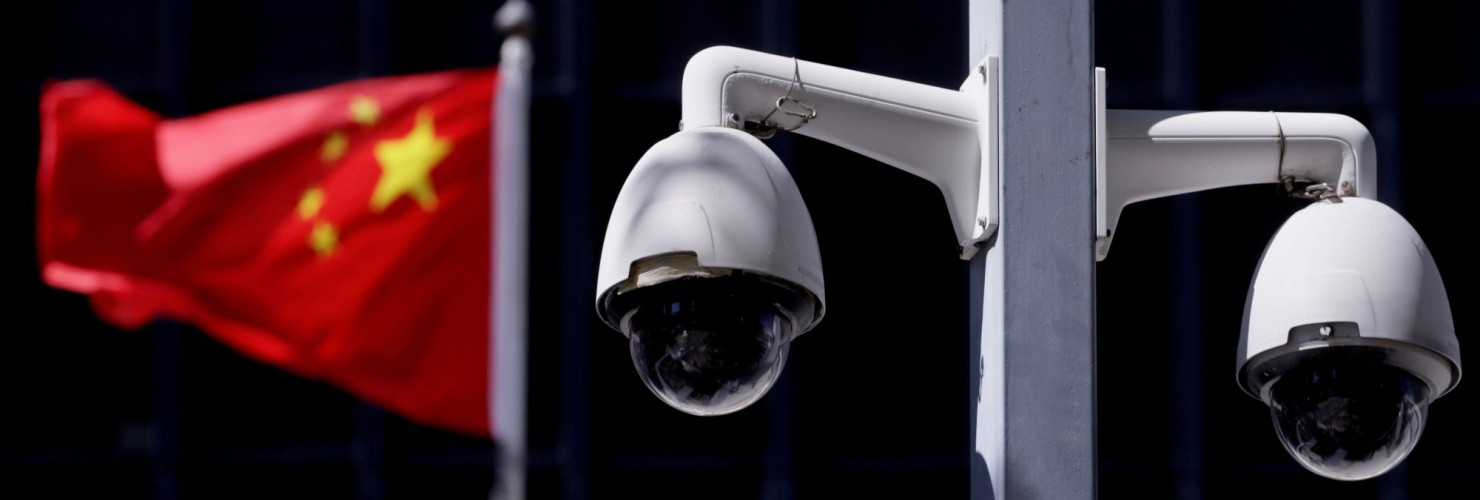

Europe’s blind spot: How transnational repression undermines democratic resilience
 | This analysis is part of the MERICS Europe-China Resilience Audit. For detailed country profiles and further analyses, visit the project's landing page. |
China and other authoritarian regimes often target dissidents and minorities living abroad. Daria Impiombato says the EU must do more to protect vulnerable communities.
There is growing momentum among Western countries to take stronger action against transnational repression—the overt and covert tactics of some authoritarian governments, including China, to suppress dissent abroad. In June, the leaders of the United States, Japan, Germany, France, the United Kingdom, Italy, Canada, and the EU pledged “to boost G7 cooperation” to counter a practice that “undermines national security [and] the safety and human rights of victims.” The UN High Commissioner for Human Rights, Austrian diplomat Volker Türk, also told the Human Rights Council that all states should have “zero tolerance” for such abuses.
However, Europe remains ill-prepared. According to a European Parliament study on the impact of transnational repression on public life, “EU member states are falling short in upholding their obligations to protect human rights defenders at risk.” While prosecuting other governments’ spies is necessary, treating transnational repression (TNR) solely as state-to-state interference risks obscuring the more subtle forms of repression that authoritarian regimes deploy against inconvenient individuals – such as online threats, surveillance, and intimidation – leaving many vulnerable communities exposed.
EU should follow the example of other countries
The study recommends that EU agencies formally integrate combating TNR into their human rights protection frameworks, ensuring that exiled activists or minorities abroad can be officially recognized as at risk and entitled to protection. It also urges the adoption of an official definition of the phenomenon, allowing EU institutions and member states to share a common understanding and respond consistently. Such steps would further enable states to improve data collection to better quantify the problem, review their legal frameworks, and provide more targeted training for police and intelligence services.
Europe can look to other countries for examples. Canada, for instance, has taken significant steps after identifying transnational repression as “one of the greatest strategic challenges to Canada’s sovereignty and democracy.” It created a foreign interference watchdog, announced the introduction of a foreign agent registry, and passed new legislation following a major public inquiry. These measures reflect a recognition that tackling repression requires both domestic safeguards and international coordination. It was no coincidence that the G7 pledge on TNR was signed at the Kananaskis Summit during Canada’s G7 presidency.
TNR has garnered significant attention in recent years due to increasing evidence of Beijing’s systemic targeting of dissidents, ethnic groups, political activists, journalists, students, and others abroad—at times using regular diplomatic and law enforcement channels, but more often relying on covert ones. In April, the International Consortium of Investigative Journalists (ICIJ) published evidence concerning victims in 23 countries, including a dozen European states. It documented instances of hacking, surveillance, indirect threats on European soil, and interrogations of family members in China as part of what it called a “sophisticated, global campaign” that makes repression difficult to detect and counter.
China uses these covert tactics in tandem with overt exploitation of law enforcement mechanisms such as INTERPOL, extradition treaties, arrest warrants, or counterterrorism efforts. In coordination with the ICIJ, Le Monde highlighted the opacity of INTERPOL’s red notices. Beijing has used these worldwide requests to co-opt European law enforcement agencies into the provisional arrest of thousands of people it sought to extradite. While many European countries maintain law enforcement cooperation and extradition treaties with both China and Hong Kong, European courts have so far acted as crucial safeguards against politically motivated extradition and, since 2019, have increasingly rejected such requests. In 2022, the European Court of Human Rights set a landmark precedent by refusing extraditions based on the “authoritarian nature” of China’s regime.
Beijing continues to pressure EU countries with weak points
But this has not stopped Beijing from trying. Instead, it has continued to pressure European countries with close economic ties to China and relatively weak judiciaries and has become involved in the internal security affairs of European states that openly side with it. For example, it recently finalized a new extradition treaty with Hungary, which reportedly also allows Chinese law enforcement officers to patrol alongside Hungarian police.
Beijing additionally uses proxies to harass individuals, spread intimidation and fear, and ultimately silence dissent. Recent cases have shed light on the rising risks of co-optation and espionage. For instance, US authorities in March reportedly arrested two foreign nationals for allegedly hiring people to intimidate a US resident for criticizing Xi Jinping. These kinds of operations fracture trust within communities, fuel self-censorship, and undermine the pool of diaspora expertise that European societies could otherwise benefit from. Low trust in local authorities further compounds the problem, as communities often attribute their reluctance to report intimidation to a prevailing “climate of fear.”
Europe needs to take action. First, integrating transnational repression into Europol’s mandate would improve information sharing between member states. Second, domestic legislation must be expanded and adapted to include specific definitions of TNR. Cross-agency training should be prioritized, and cooperation with civil society and diaspora communities strengthened. Moreover, the EU’s 2023 Defense of Democracy package – designed to protect public life in the EU from covert foreign influence – should be enhanced by explicitly addressing TNR-related challenges.
For Europe, the challenge is significant but not insurmountable, as many member states now recognize the complexity of the issue. However, they must be prepared to take political heat and invest in the necessary resources. If the EU and its member states fail to act decisively, authoritarian states will continue to intimidate communities within European borders, eroding democratic resilience on European soil. Beijing’s persistence in pursuing its overseas targets makes it ever more pressing to act now.

This analysis was made possible with support from the “Dealing with a Resurgent China” (DWARC) project, which has received funding from the European Union’s Horizon Europe research and innovation programme under grant agreement number 101061700.
Views and opinions expressed are however those of the author(s) only and do not necessarily reflect those of the European Union. Neither the European Union nor the granting authority can be held responsible for them.

